Volkswagen has revealed its seventh-generation California camper van.
Set to go on sale in June before deliveries begin in the second half of the year, the new California strongly resembles the concept shown by the German firm in 2023.
The California is now derived from the Volkswagen Multivan MPV, rather than the Transporter van, so it sits on the Volkswagen Group's MQB car architecture.
Measuring 5173mm long and 1941mm wide, the new California is 269mm longer and 39mm wider than its predecessor, while its 1990mm height is identical.
Along with a slight increase in size, the new California introduces a host of new design and practicality changes.
It’s the first California to come with two sliding doors as standard, with one on each side of the van.
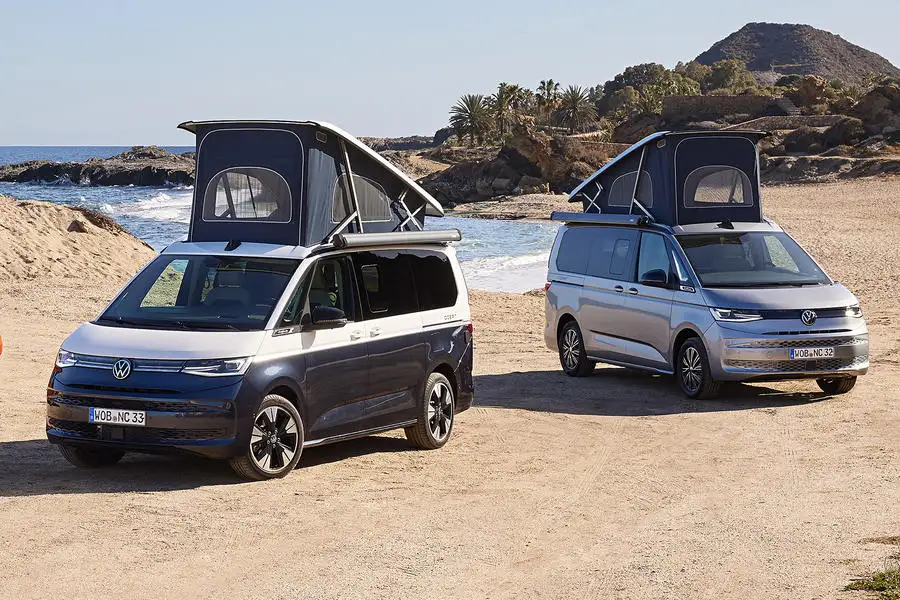
This means that both sides of the van can now be used for entering and exiting the rear and that the kitchen – with larger worktops, a hob, a coolbox and a sink – is now accessible from outside for the first time.
Optional awnings can be fitted to either side of the van.
The rear seats are now separate and individual, whereas the previous California featured a bench seat.
But the key interior feature is the addition of a new control unit with a 5.0in display, housed on the passenger-side C-pillar. This can be used to raise the pop-up roof, adjust the interior lighting, operate the fridge and heater and check the waste and water levels.
These features are also controllable through the driver’s smartphone and the touchscreen infotainment system.
The California will be available with a choice of petrol or diesel engines but is also the first Volkswagen camper to offer a plug-in hybrid powertrain.
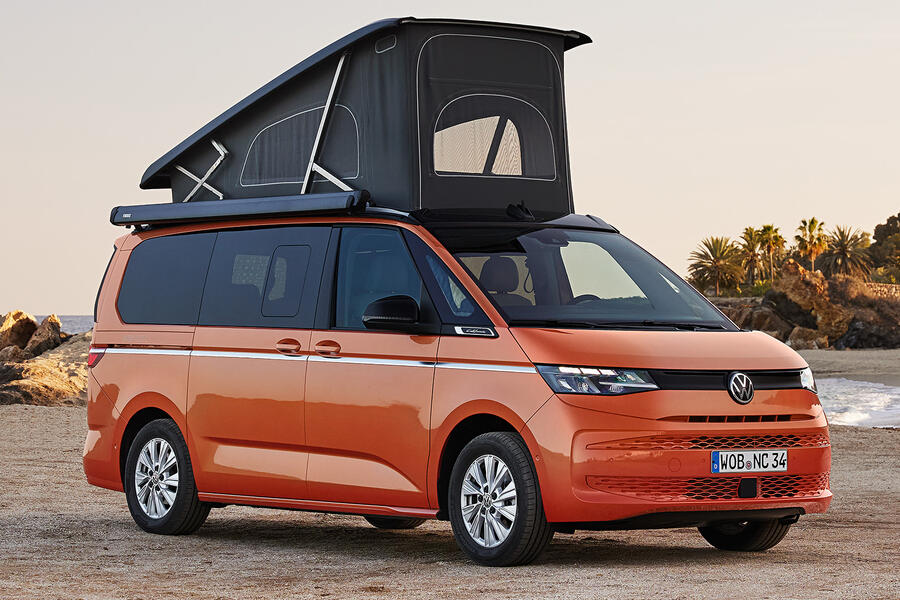

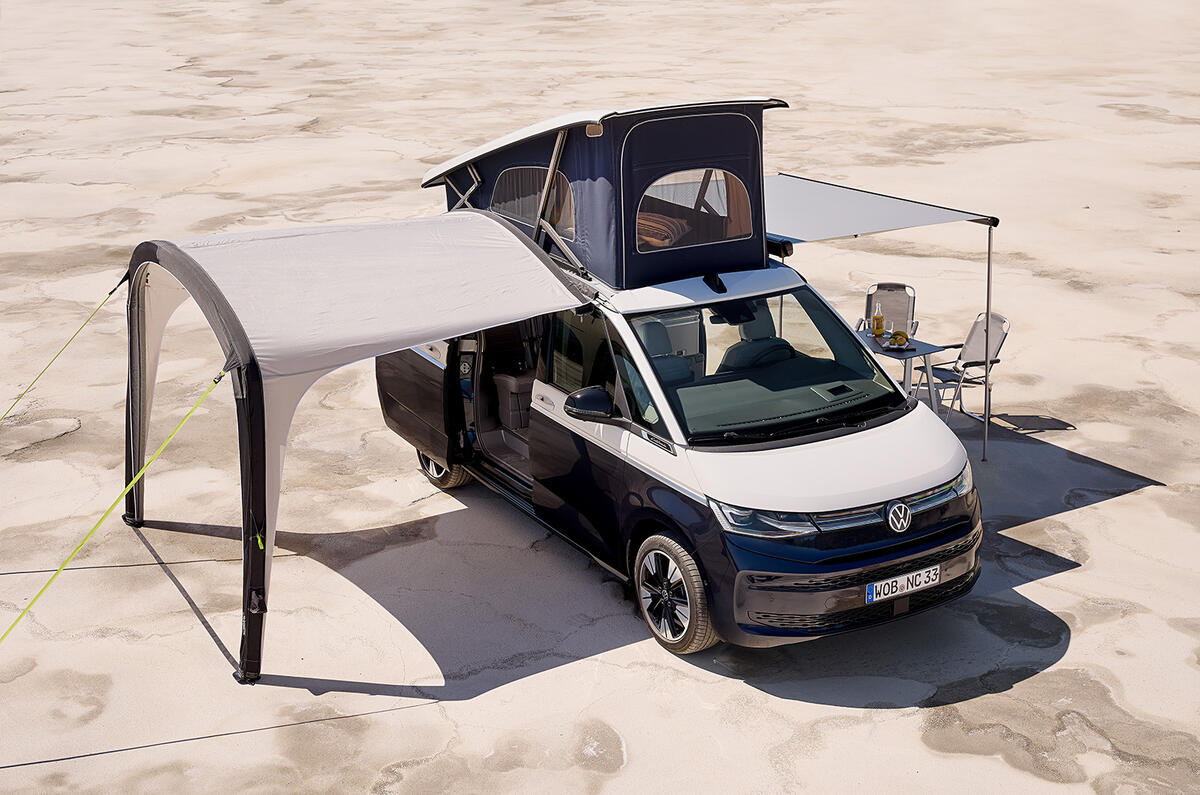
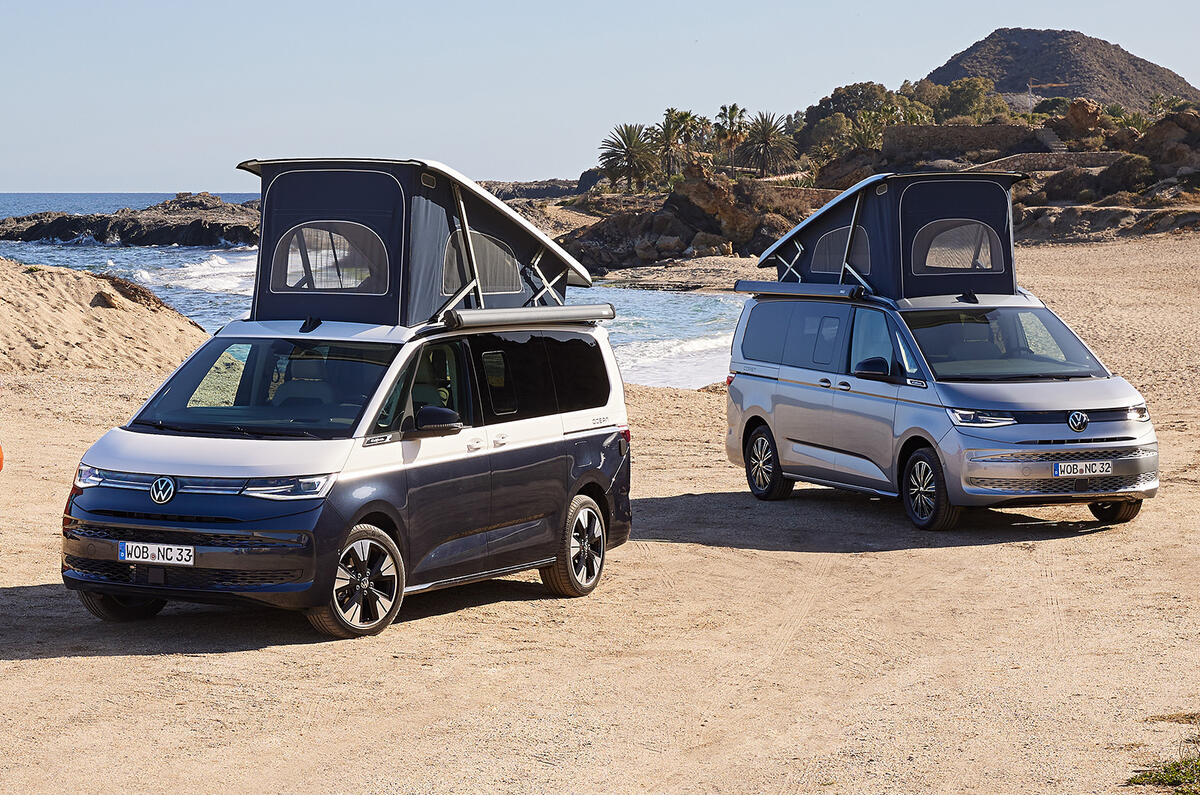
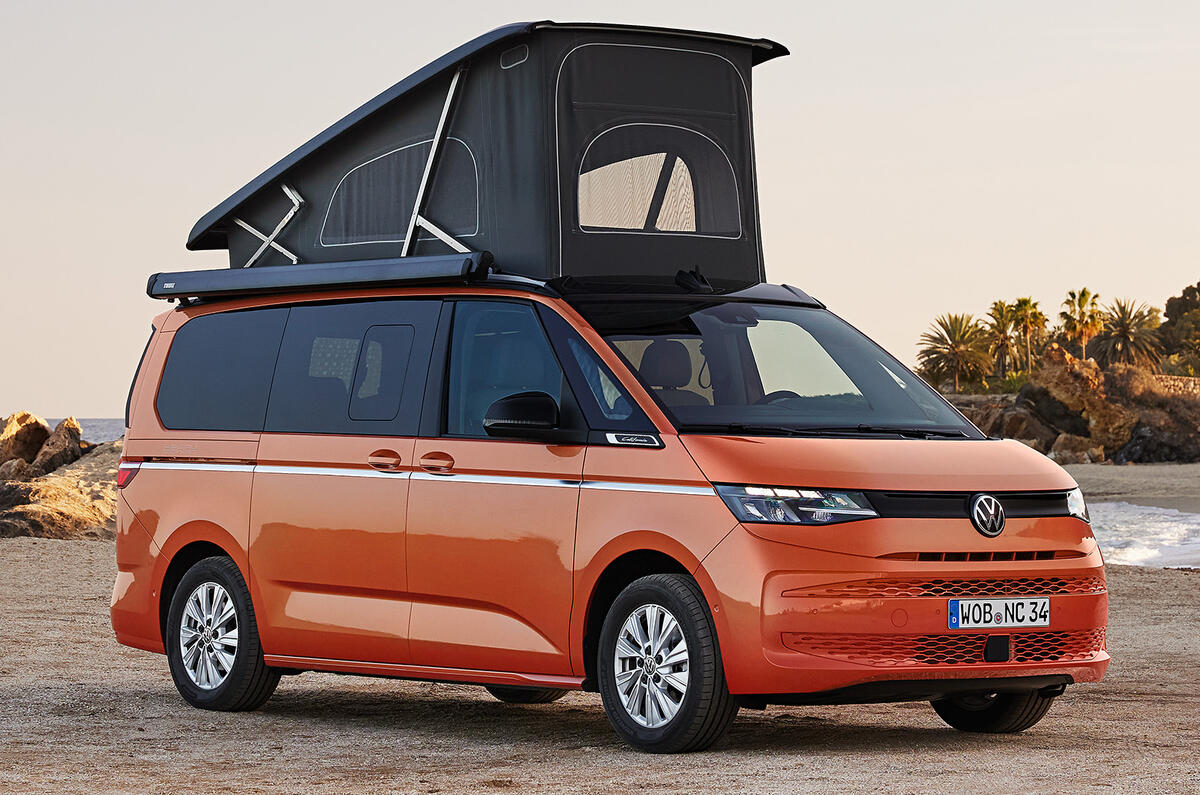
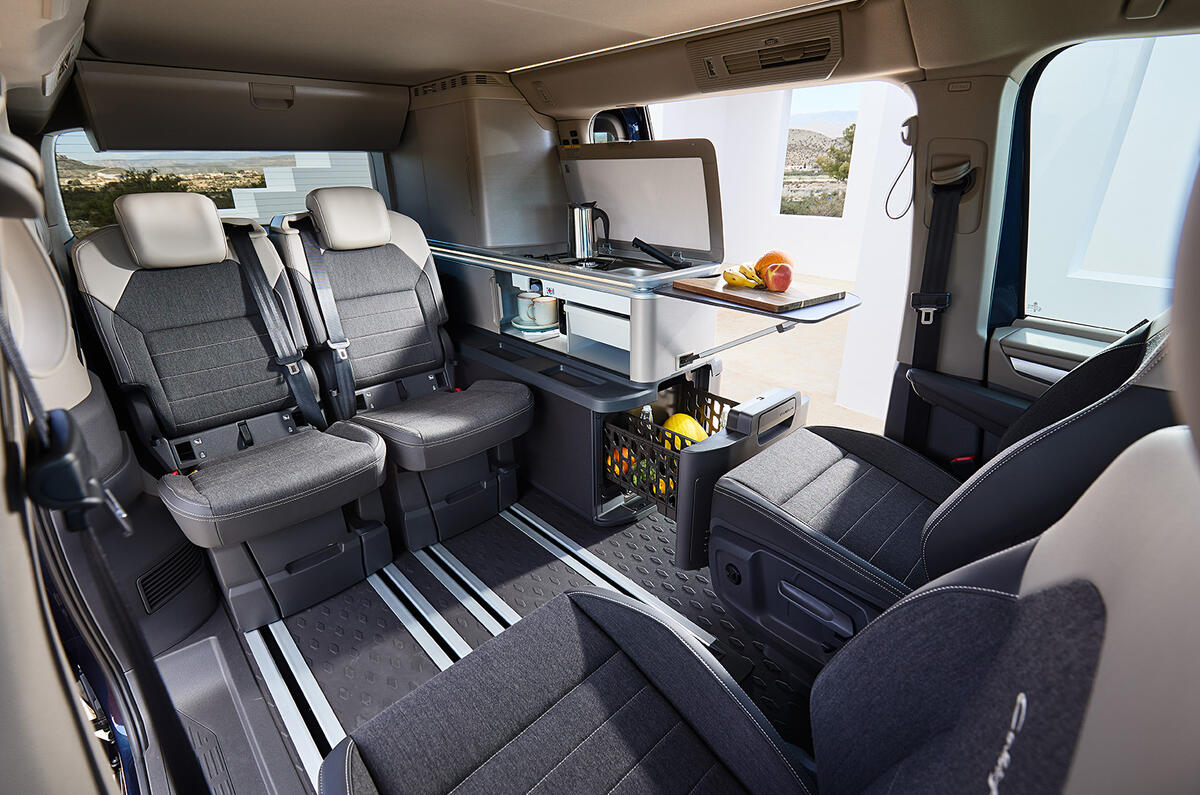
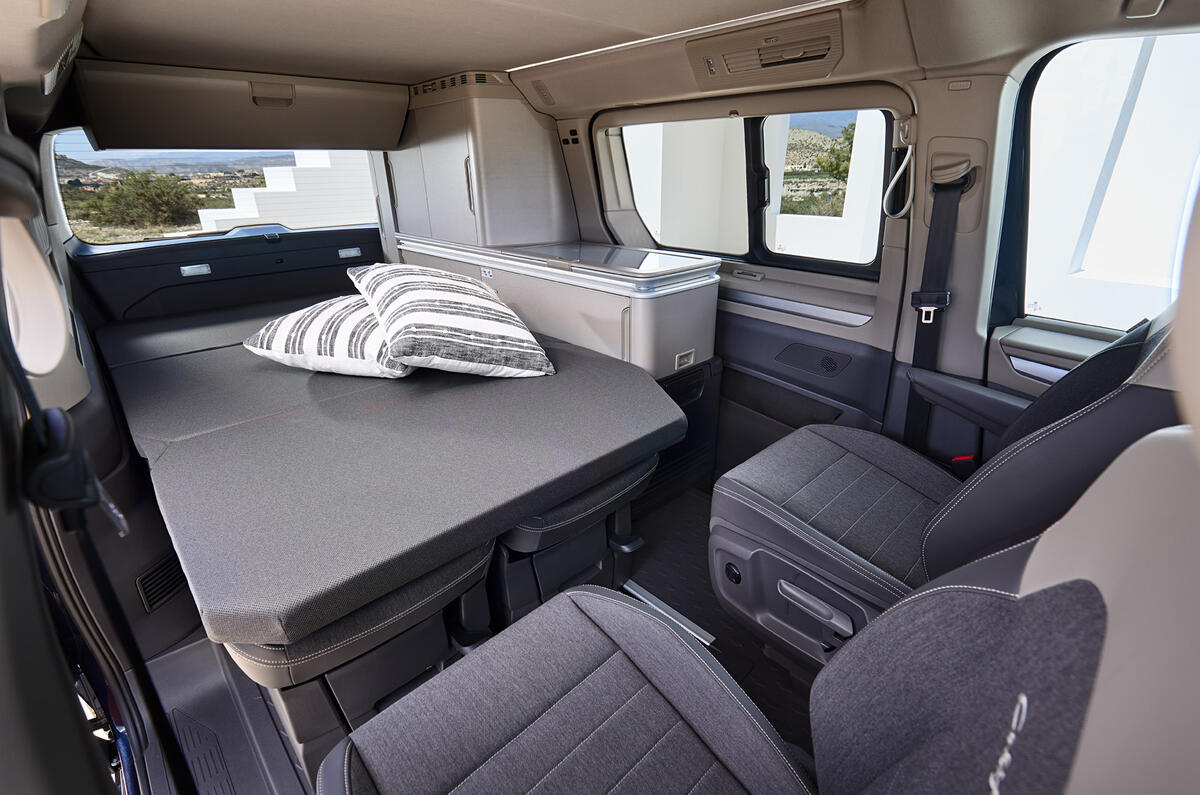
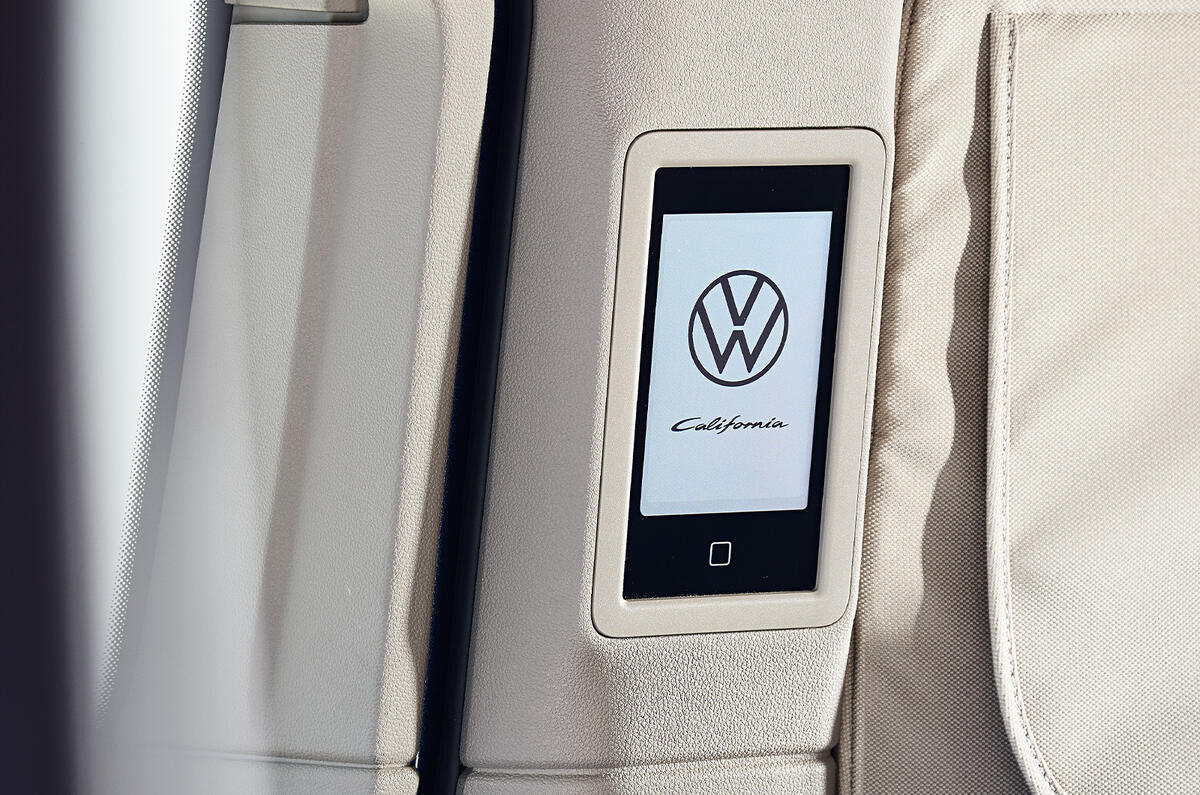
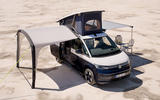
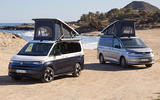
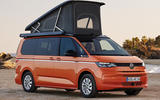
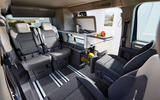
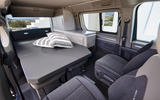
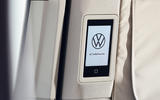

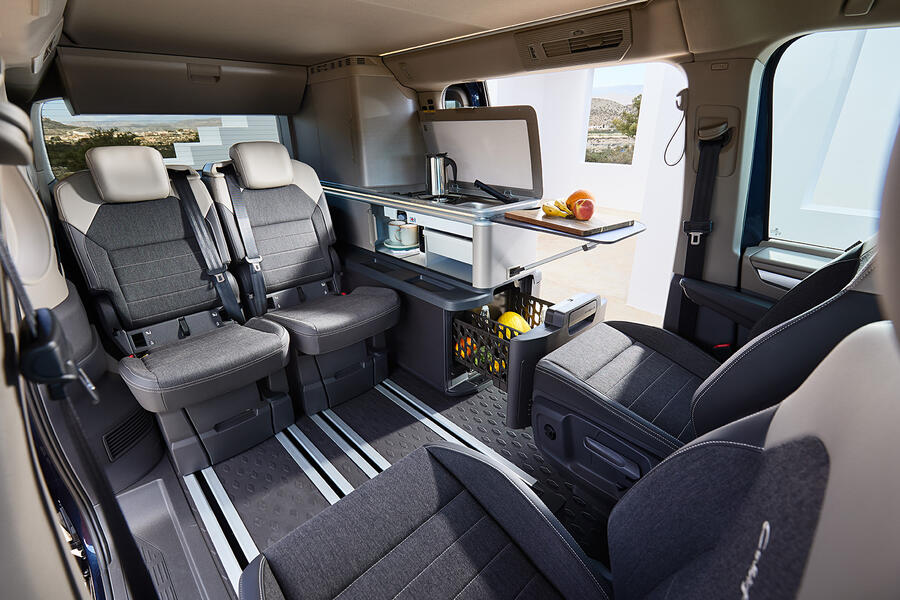

Add your comment